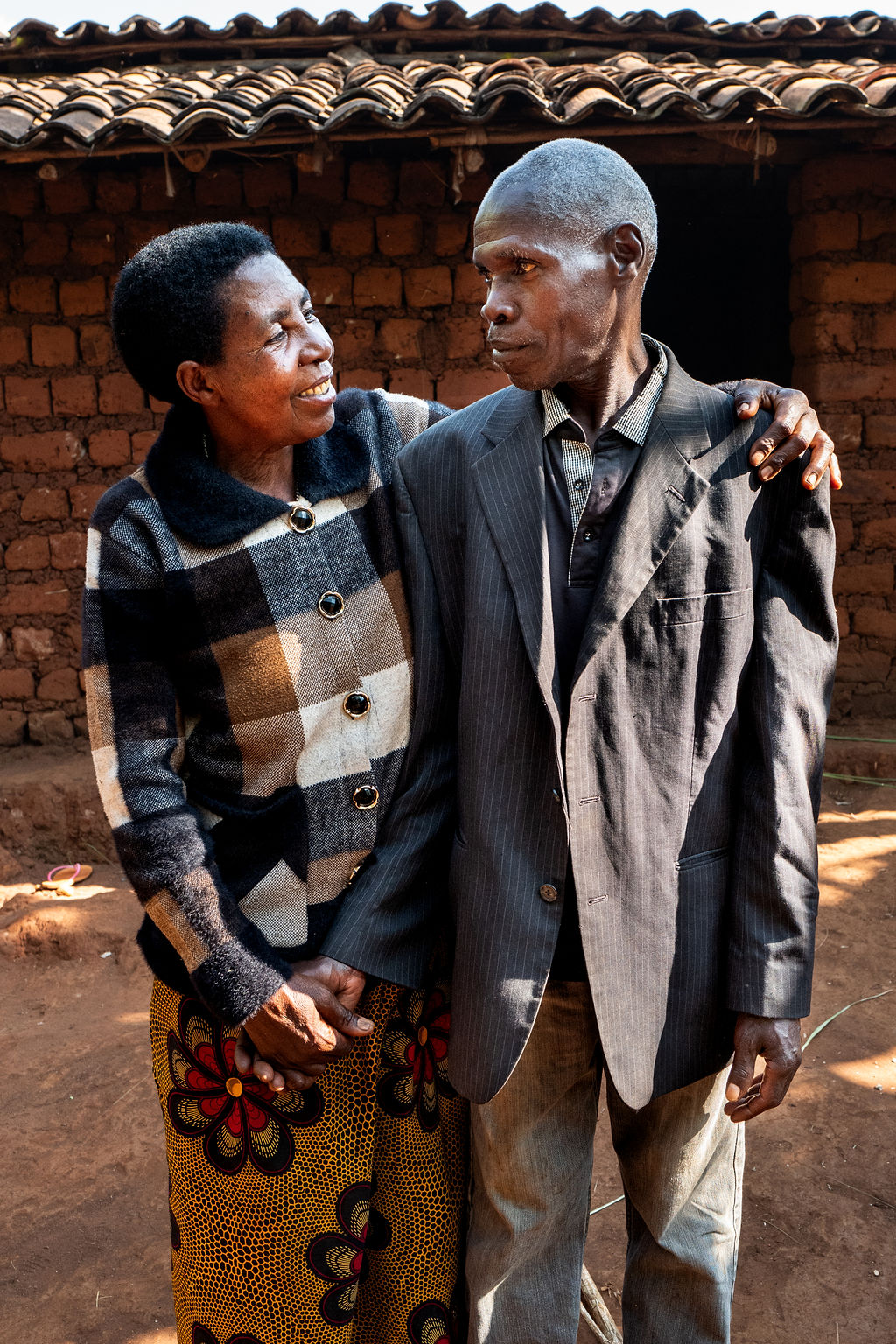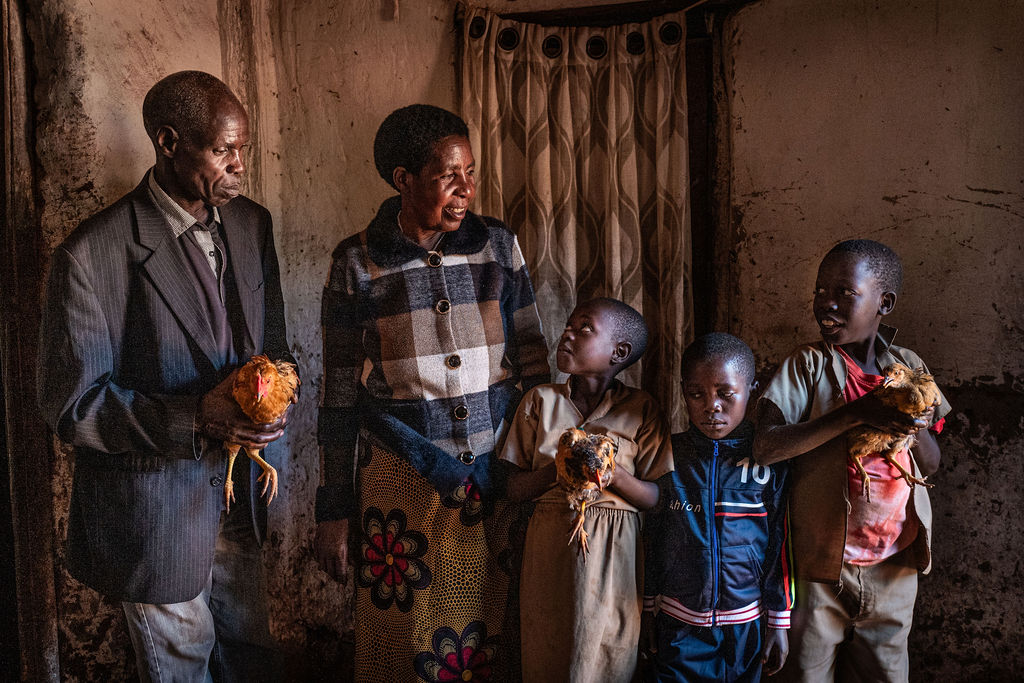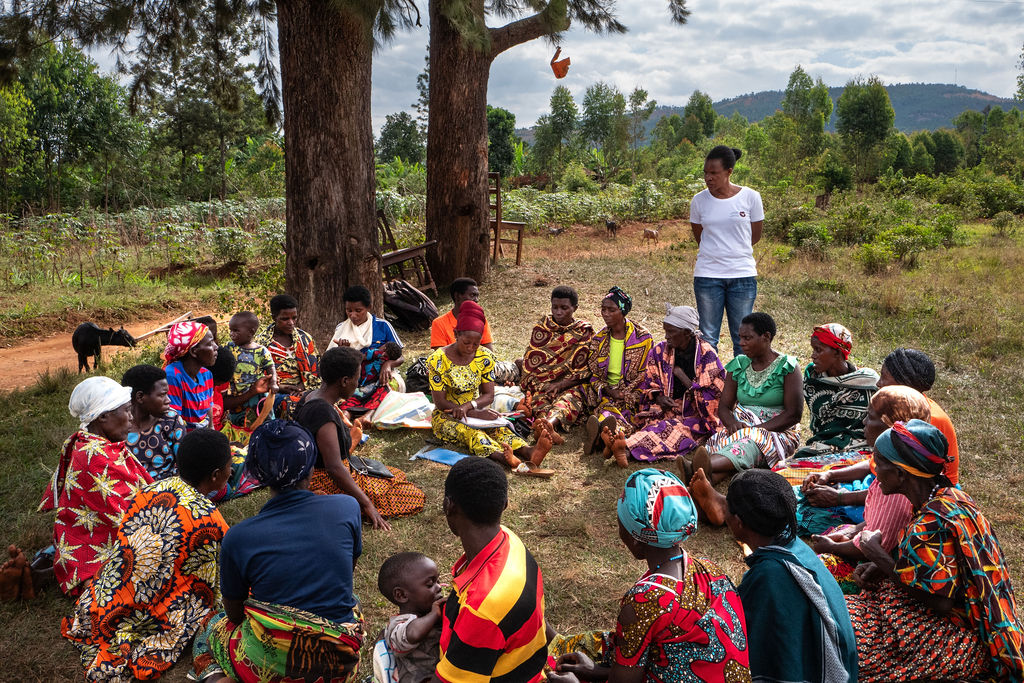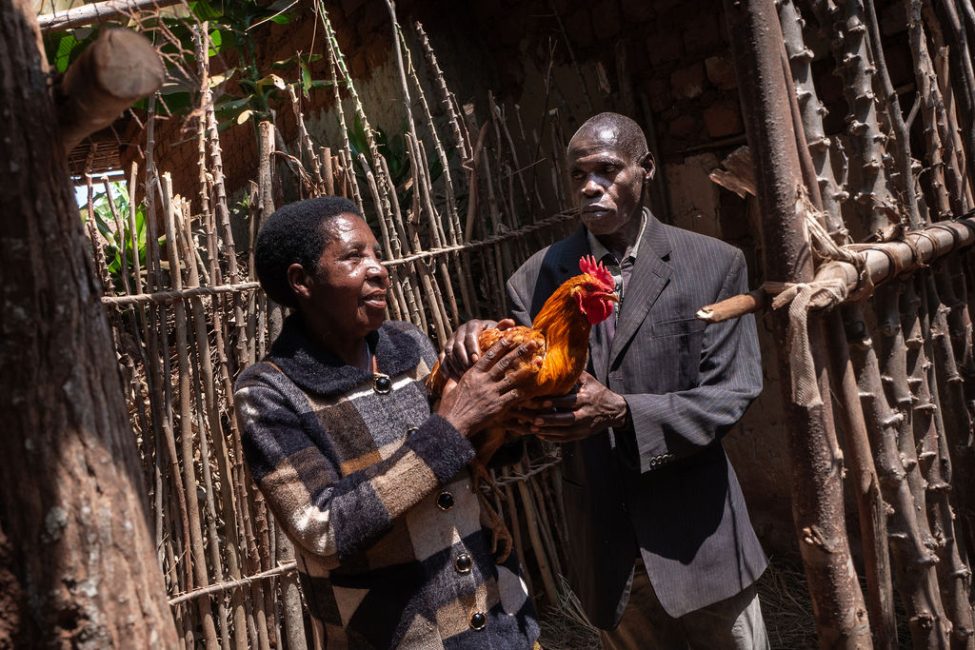At the age of 60, Denise Kansuraheba has never considered herself to be a vulnerable person. However, you only need to hear her story to understand that her life has not always been easy. On Ntaho hill in northern Burundi, where she was born, she raised eight children with Serge, whom she still refers to affectionately as ‘my darling’. Their love has endured, although it has been severely tested at times. For many years, Denise could hardly afford a scrap of clothing. She did her best to feed her children properly, but if any of them fell ill, she had no money to care for them.
Today Denise and Serge’s children are grown up, and most of them have started families of their own. Their family home is not empty, though, because three of the couple’s grandchildren live with them. “We eat eggs every day – as many as we want! And we kill a chicken for food every two weeks”, Denise explains, proud that she can give her grandchildren the best.
Discovering modern poultry farming

After living together for many years and facing many tough times together, Denise and her husband Serge are still a united couple. Poultry farming allows them to look forward to old age with a greater sense of serenity. © Loïc Delvaulx
The couple keep about fifty well-fed birds in their big chicken coop. The benefits are manifold: their eggs are an excellent source of protein and selling them brings in a good income. That is something that Denise has always known, and anyway she had started keeping chickens long before she received support from Vétérinaires Sans Frontières Belgium. But without a chicken coop to protect her poultry, the activity scarcely turned a profit: the birds wandered around laying eggs wherever they liked, whether that was in the forest or on a neighbour’s land. Denise rarely caught a glimpse of her eggs or the chicks that are so vulnerable to predators.
All that changed when our colleague Emmanuella came to visit in 2017. The facilitator talked to her about the option to crossbreed her chickens with a rooster from an improved breed to increase their productivity. That is how Denise came to receive a rooster, a chick brooder and training in modern poultry-farming techniques. Seven years later, Denise has become a model poultry keeper. She keeps her chicks in the brooder for their first two months of life, then moves them to the chicken coop she has learned to build.
Chickens, goats, a cow… and soon a shop, too

Denise and Serge have taken in three of their grandchildren. They are proud to be able to offer them a rich diet, thanks to the meat and eggs that their poultry provide. © Loïc Delvaulx
“Everything I have today is thanks to the support I received from Vétérinaires Sans Frontières Belgium”, the grandmother concludes with a satisfied smile. And it is clear that Denise has benefited enormously from that support: in seven years, she assures us that she has sold at least as many birds as she currently owns. She also regularly sells eggs as well.
With the income earned from this, she has been able to expand her business, which now covers a couple of acres from the yard behind her house to the marsh down below. She grows bananas, cassava, coffee and eucalyptus on her land. She also owns some goats, which she has entrusted to neighbours, a cow and a calf. To take care of them, she employs agricultural labourers and even a cowherd. Their cow is due to calve again a month from now. Denise already knows what she is going to do with the calf: once it is big and strong enough, they will sell it to buy a plot of land near the surfaced road and build a shop there.
A model of success

Since 2020, Denise has been the president of a savings and loan association exclusively for the female poultry keepers on her hill. This is a great source of pride to the 60-year-old. © Loïc Delvaulx
Denise’s proudest achievement, however, is that she has been able to climb the social ladder. Since 2020, she has been the head of an association of female poultry keepers, who re-elect her every year. The 25 women meet up every Saturday to save money and lend it to the ones who want to invest in their activities. To reward their good management and boost their capital, the State has even awarded them a prize of 500,000 francs (about 160 euros, a small fortune in rural Burundi). Once a year, they divide up the interest on their savings among themselves, leaving their basic capital untouched.
Today, the 60-year-old has become a role model on Ntaho hill. She has been designated the representative of justice on the hill because of her success and good reputation. So people now come to her to settle conflicts between neighbours. “People trust my judgement. What makes me proud is the mutual social support and community spirit that I have been able to instil in those around me.”
To find out more about our approach to empowering women through poultry farming in Burundi, take a look at our thematic fact sheet.

